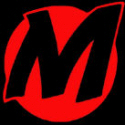 As Star Trek: Nemesis tanked at the box office and Star Trek: Enterprise was unceremoniously yanked from the airwaves after four seasons, it wasn't a far stretch to pronounce the Trek franchise dead — or at least, gasping its last breaths. The scifi community was seeing bold new franchises excel where the bloated Trek failed, and a thought rippled around the world: maybe it's time to let go.
As Star Trek: Nemesis tanked at the box office and Star Trek: Enterprise was unceremoniously yanked from the airwaves after four seasons, it wasn't a far stretch to pronounce the Trek franchise dead — or at least, gasping its last breaths. The scifi community was seeing bold new franchises excel where the bloated Trek failed, and a thought rippled around the world: maybe it's time to let go.
The wisest movie, it seemed, would be to let the franchise lay fallow for a number of years, perhaps up to ten or even twenty, before attempting a resurrection.
Paramount decided four was enough. It's been announced that J.J. Abrams (Alias, Lost) will be helming the eleventh Star Trek movie, called, simply, "Star Trek". While few details have been released, it seems that Matt Damon is on board, probably to play Captain Kirk in his salad days. Abrams is quite excited about the project, as you can read here, but I have my severe doubts.
Obviously, they're attempting something of a "reboot" of the franchise, a la Batman Begins, but it doesn't quite seem like they're going to just wipe the slate clean of almost a half century of Trek shows and movies and lore just to make it "hip" and "cool" again. So what we'll probably end up with is a half-breed, trying to be new but still constrained in the old Star Trek formula, and there's an excellent chance it will fail and in so doing, bury any hopes of Trek continuing past this point.
Alarmist? I suppose, but let's face the facts. This might well be Trek's last shot at regaining its former glory, and a lot rides on Abram's shoulders. I have a few suggestions that might help out in avoiding the big mistakes here:
1. Distance yourself from the Trek timeline and mythos. The whole of filmed Trek stretches from Captain Archer to Captain Janeway, and in that period any movie or show would be buried under a mountain of established rules, histories, lore and technologies that constrain rather than free the storyteller to go to new places.
Since going back to the past proved disasterous for Star Trek: Enterprise, which was burdened by having to make sure it didn't break any of the continuity of "future" facts, the only conceivable option is to go in the future. Way, way in the future. Put the new Star Trek about five hundred or even a thousand years past Star Trek: Voyager, which might allow for all sorts of new storytelling possibilities. Wipe the slate somewhat clean, and start over.
2. Ditch Roddenberry's misguided idealistic humanism, and reintroduce complex characters and good drama. Good storytelling comes from conflict, and Star Trek always suffered from bright, shiny, perfect people with far too flaws — per Roddenberry's dictum. No, it's not a bad thing to shoot for the stars and strive for the best of what humanity has to offer, but trying to portray a society that's too gosh-darned perfected both distances yourself from the (unperfected) viewers and limits the conflict to external sources — the stale space anomalies and bumpy-headed aliens.
Starfleet was like the Boy Scouts, group therapy and Rainbow Brite rolled into one. Happy ideals and unfallable speeches. What we need is a Starfleet that actually functions the way a hybrid military/exploration/diplomatic branch would, and flawed humanity to inject into its veins.
3. If you haven't already, fire Berman and Braga. These two have run Star Trek into the ground, are in full denial of the fact, and only deserve a painful death.
4. Focus on what made Star Trek exciting: good stories, great action, humor, fun technology and exploration of the unknown.
5. It's essential to cater to both the faithful Star Trek core (to keep your loyal fans happy) AND the bulk of the mainstream who have long since given Trek the pass (Trek is in dire need of new viewers). A billion references to other shows or characters that the average moviegoer has no clue about will not help your cause, even if the Trekkies dig it.
Saturday, March 10, 2007
Star Trek: The Search For Coolness
Posted by
Justin
at
7:25 AM
![]()
Subscribe to:
Post Comments (Atom)


No comments:
Post a Comment